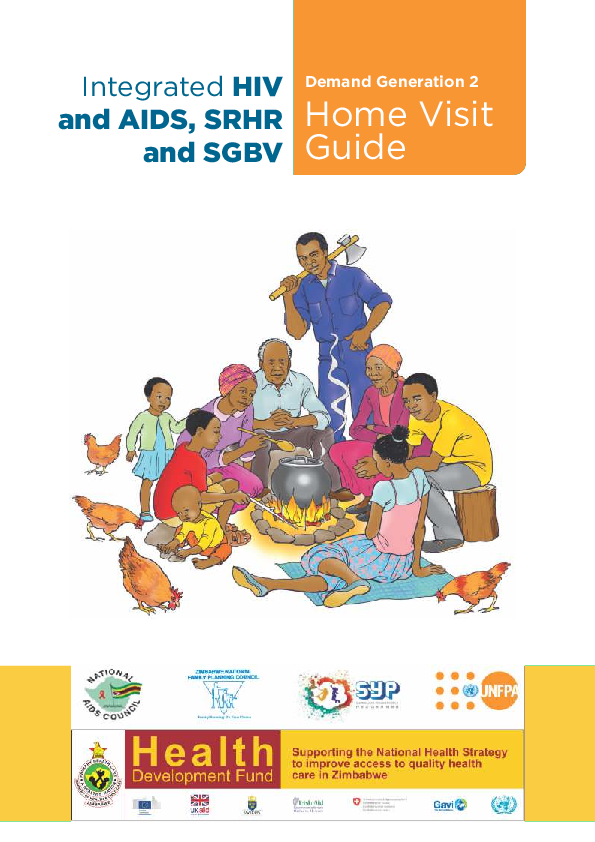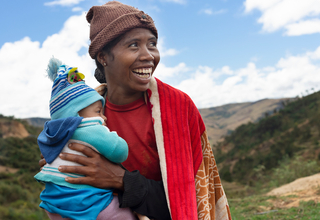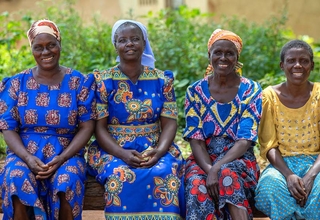Zimbabwe experienced an extremely challenging environment during the 2000-2008 period. This was characterized by hyper-inflation, a complex political and humanitarian situation and a breakdown of social service delivery as well as a near collapse of the health system. The health system is currently recovering from the impact of these challenges. Although the nation experienced some economic recovery from 2009 to 2012, economic growth further declined in the period 2013 to 2016 and prospects for the next five years are predicted to still remain sluggish.
The HIV epidemic has also impacted on a number of other Sexual and Reproductive Health (SRH) related conditions including the high burden of cervical cancer and increase in gender-based violence. Conversely, unmet needs for family planning, especially among adolescents, and Sexual and Gender-Based Violence (SGBV) have also played a role in the pressing situation in the country. Adolescent pregnancy remains a major challenge and contributor to maternal and child mortality, usually leading to ill-health and poverty. This highlights the need for appropriate interventions centred on social and behaviour change communication to positively impact on the sexual and reproductive health of people.
The Social and Behaviour Change Communication Programme for Integrated Sexual and Reproductive Health and Rights, HIV and AIDS, and Sexual and Gender Based Violence is a nationally owned program funded by various partners through a combination of parallel and pooled funding streams along four mutually reinforcing programmatic pillars:
· Socially marketed integrated SRHR, HIV and AIDS and SGBV services and mass media;
· Public sector integrated SRHR, HIV and AIDS and SGBV services and community-based Social and Behaviour Change Communication (SBCC);
· Family Planning commodities; and
· Research and Evaluation.
The Social and Behaviour Change Communication (SBCC) Programme is consistent with the National Health Strategy for Zimbabwe 2016-2020, the Zimbabwe National Family Planning Strategy (ZNFPS) 2016-2020, the Extended Zimbabwe National HIV and AIDS Strategic Plan (ZNASP) 2015-2020, the National Adolescent and Youth Sexual and Reproductive Health (ASRH) Strategy II: 2016-2020, and the Zimbabwe National Gender Based Violence Strategy 2012-2015. The overall goal of the SBCC Programme is to contribute to improving sexual and reproductive health through reducing the incidence of maternal morbidity and mortality among women, cervical cancer, HIV and SGBV. This will ultimately contribute to Ministry of Health and Child Care's vision “to have the highest possible level of health and quality of life for all Zimbabweans”. The programme will also promote attainment of the Zimbabwe Agenda for Sustainable Socio-Economic Transformation (ZimAsset) and the Sustainable Development Goals (SDGs).
The national social and behaviour change program was initially implemented in 26 districts supported through ESP funding (2007 to 2009) and was scaled-up to the remaining 36 districts through Global Fund support. The program will support the retention of 800 community BCFs to enhance the delivery of a broad range of integrated HIV prevention, SRHR and SGBV mitigating messages and services.
The use of the door-to-door approach to reach families, couples and individuals will enhance information dissemination through Inter Personal Communication (IPC). This entails community BCFs visiting all households in the district and going through a personal risk and needs assessment tool with the family members, leaving the families with specific recommendations of HIV, SRHR and SGBV services available to them. Particular attention will be paid to mobilizing service uptake by couples, including sero-discordant couples.
The program delivers a broad range of integrated HIV prevention, SRH and GBV messages and services.



